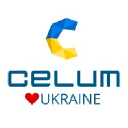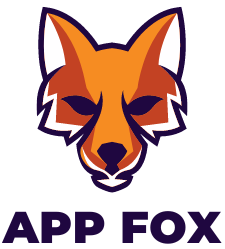The Top 7 Best Digital Asset Management Tools
1. Adobe Experience Manager Assets
- Robust content management and delivery capabilities
- Seamless integration with other Adobe products
- Powerful automation and personalization features

Adobe Experience Manager Assets is a powerful content management system that offers robust content management and delivery capabilities, seamless integrations with Adobe products, and powerful automation and personalization features.
With flexible pricing plans and exceptional customer feedback, it's a top choice for businesses seeking a comprehensive solution for managing and delivering content.
2. Bynder
- Intuitive and user-friendly interface
- Robust digital asset management capabilities
- Advanced brand management features

Bynder is a comprehensive digital asset management and brand management solution trusted by businesses worldwide. With its intuitive interface and robust features, Bynder streamlines the management of digital assets and ensures brand consistency across all channels.
Discover why Bynder is the top choice for businesses and independent professionals looking to optimize their digital asset management processes.
3. Celum
- Comprehensive digital asset management capabilities
- Intuitive and user-friendly interface
- Robust integration with other applications

Celum is a leading digital asset management tool designed to empower businesses and freelancers to effectively organize, manage, and share their digital content. With its intuitive interface and powerful features, Celum streamlines workflows and enhances collaboration, making it a valuable asset for any organization.
4. Canto
- Wide range of cybersecurity features, including virus detection and protection against phishing
- Quick and efficient performance for enhanced productivity
- Customer support available for any inquiries or assistance needed

Canto provides a comprehensive cybersecurity solution, offering a wide range of features for enhanced protection against cyber threats. Its efficient performance and cost-effective pricing make it an ideal choice for businesses and individual users seeking reliable cybersecurity measures.
5. MediaValet
- Efficient organization and storage of diverse file types
- Robust collaboration capabilities for seamless teamwork
- Strong integration with third-party applications for enhanced workflow
- Customizable metadata fields for tailored asset management
- Secure and scalable platform for peace of mind and growth

MediaValet offers efficient organization and storage of diverse file types, along with robust collaboration capabilities and strong integration with third-party applications. With customizable metadata fields, a secure and scalable platform, MediaValet is the ideal digital asset management solution for businesses seeking streamlined efficiency and growth.
Experience improved efficiency, enhanced collaboration, streamlined workflows, and secure asset management with MediaValet, an indispensable tool for businesses across diverse industries.
6. Nuxeo
- Robust document management capabilities
- Flexible and customizable to suit different business needs
- Scalable for organizations of all sizes

Nuxeo is a versatile and scalable document management solution designed to meet the diverse needs of businesses. With robust features and customizable workflows, Nuxeo is a top choice for organizations looking to streamline their content management processes and drive efficiency.
Scalable, flexible, and feature-rich, Nuxeo empowers businesses to manage their documents with ease, making it a valuable asset for organizations of all sizes.
7. Cloudinary Assets
- Intelligent automation for streamlined content workflows
- Centralized collaboration for cross-functional teams
- Robust metadata management capabilities
- Seamless integration with existing applications

Cloudinary Assets offers intelligent automation, robust collaboration features, and seamless integration capabilities, making it the ultimate choice for modern digital asset management. With its scalable and customizable platform, it provides a future-proof solution for businesses of all sizes.
Experience the transformative power of Cloudinary Assets and elevate your digital asset management to new heights.
FAQ
What are the key features to look for in a digital asset management tool?
When evaluating digital asset management tools, it's crucial to look for features such as intuitive user interface, advanced search capabilities, version control, and metadata management. These features can significantly enhance your ability to organize and access your digital assets efficiently.
How can a digital asset management tool improve marketing workflows?
A digital asset management tool can streamline marketing workflows by providing a centralized repository for all marketing assets, ensuring consistency in branding and enabling easy collaboration among marketing teams. This can lead to increased productivity and more efficient marketing campaigns.
What role does automation play in digital asset management?
Automation in digital asset management tools can simplify repetitive tasks such as tagging and categorizing assets, distributing assets to various channels, and enforcing digital rights management. This not only saves time but also reduces the risk of human error.
How do digital asset management tools ensure security of sensitive assets?
Digital asset management tools offer robust security features such as access controls, encryption, and audit trails to safeguard sensitive assets. Additionally, some tools provide digital rights management capabilities to control the usage and distribution of assets.
What are the best practices for implementing a digital asset management tool in a marketing strategy?
When integrating a digital asset management tool into a marketing strategy, it's essential to define clear metadata standards, provide comprehensive training to users, integrate the tool with existing marketing platforms, and regularly evaluate its performance and effectiveness.

FAQ
When evaluating digital asset management tools, it's crucial to look for features such as intuitive user interface, advanced search capabilities, version control, and metadata management. These features can significantly enhance your ability to organize and access your digital assets efficiently.
A digital asset management tool can streamline marketing workflows by providing a centralized repository for all marketing assets, ensuring consistency in branding and enabling easy collaboration among marketing teams. This can lead to increased productivity and more efficient marketing campaigns.
Automation in digital asset management tools can simplify repetitive tasks such as tagging and categorizing assets, distributing assets to various channels, and enforcing digital rights management. This not only saves time but also reduces the risk of human error.
Digital asset management tools offer robust security features such as access controls, encryption, and audit trails to safeguard sensitive assets. Additionally, some tools provide digital rights management capabilities to control the usage and distribution of assets.
When integrating a digital asset management tool into a marketing strategy, it's essential to define clear metadata standards, provide comprehensive training to users, integrate the tool with existing marketing platforms, and regularly evaluate its performance and effectiveness.